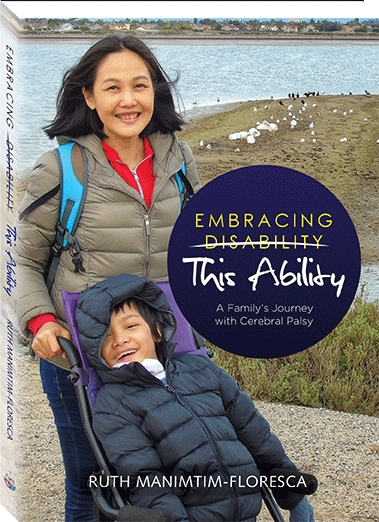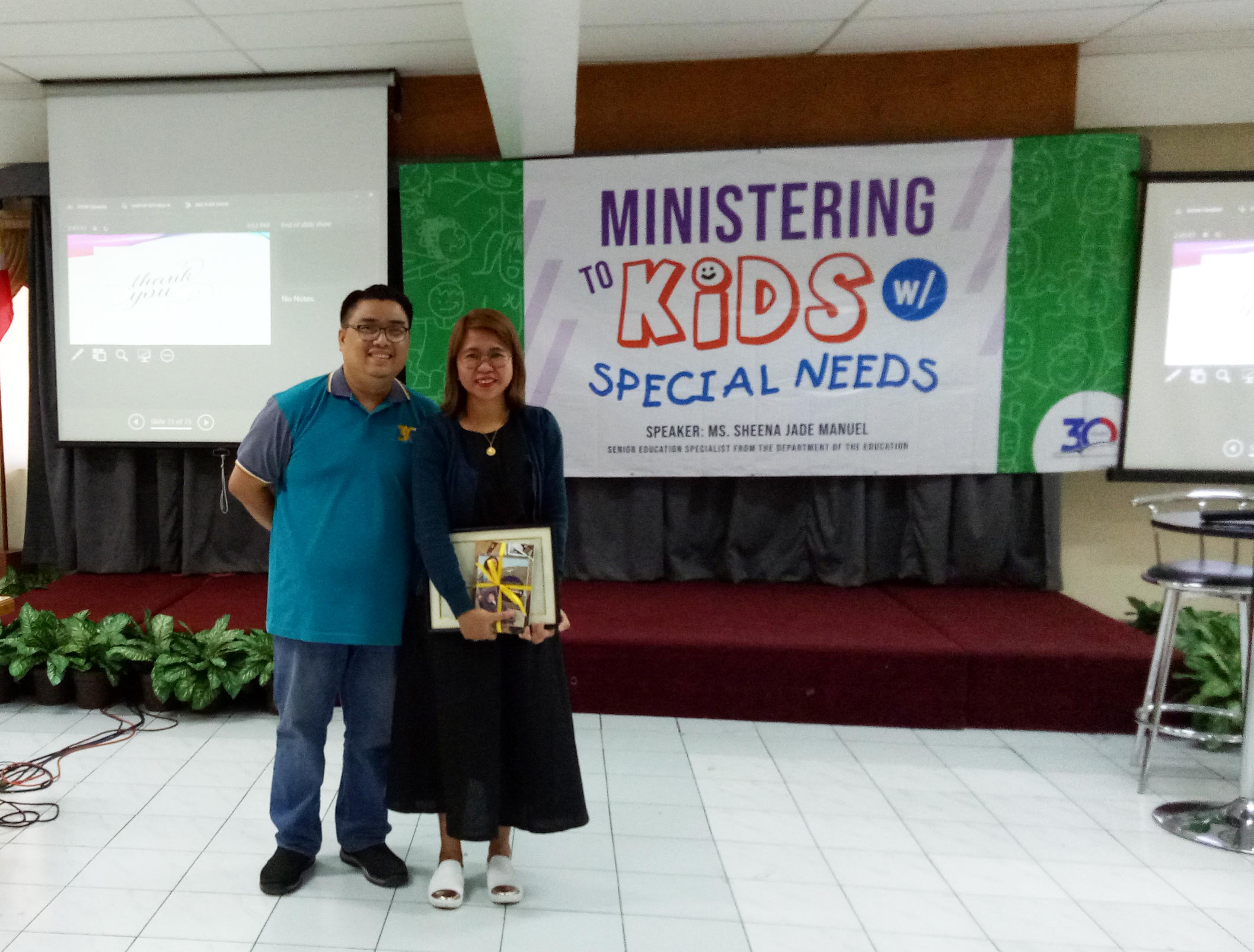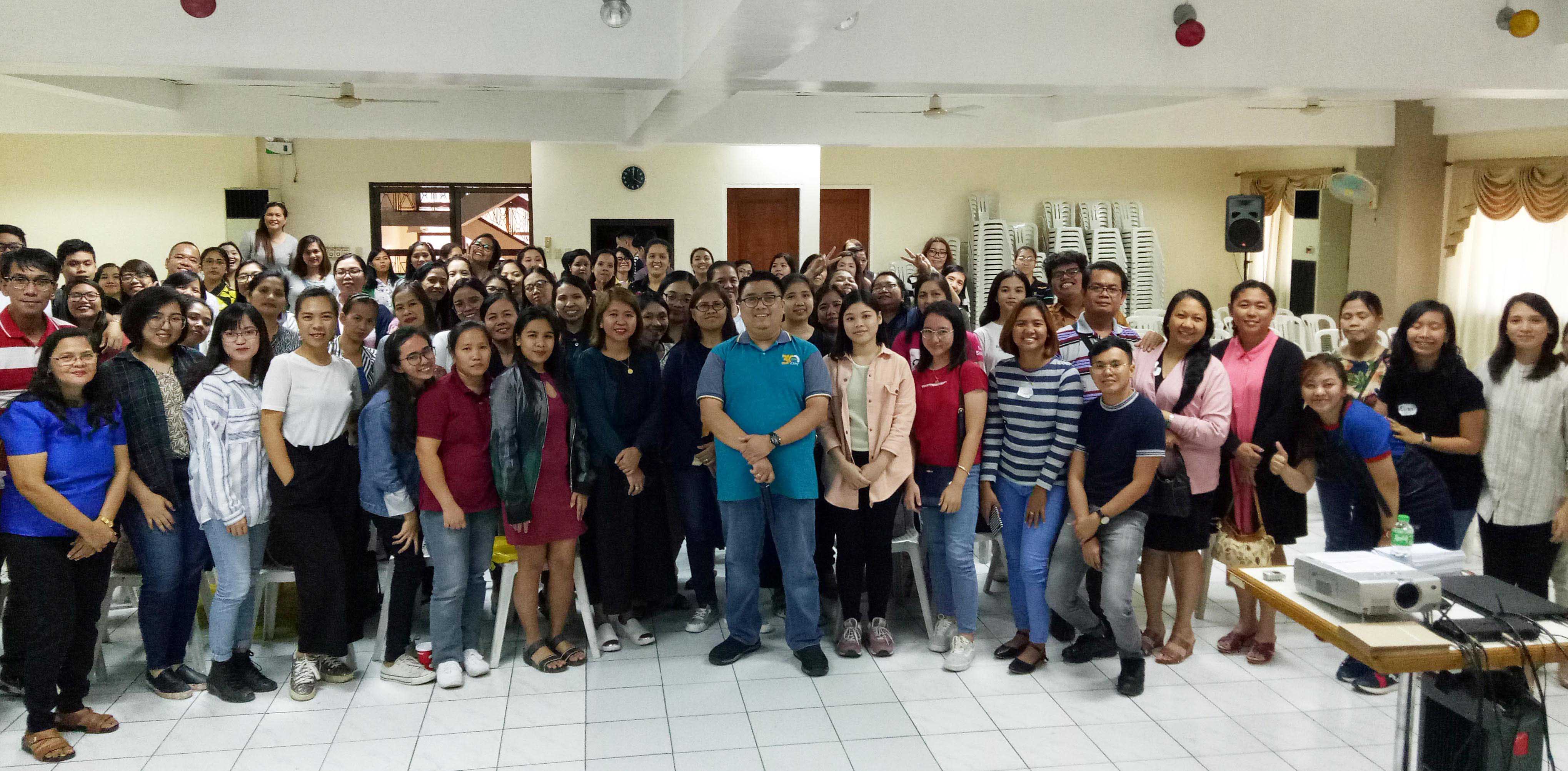Seminar on Ministering to Kids with Special Needs trained 97 delegates
Nov 18, 2019
Ninety seven delegates from 28 schools and 6 churches attended the Ministering to Kids with Special Needs seminar held on November 16, 2019 at the CSM Building in Parañaque.
The guest resource speaker, Ms. Sheena Jade Manuel, is the Senior Education Specialist from the Department Of Education Central Office and has been an advocate of Special Education for years. She is currently working on her Ph.D in Curriculum and Instruction at the Philippine Normal University.
Ms. Manuel discussed the four categories of special needs, namely: 1) Physical, e.g. multiple sclerosis, asthma, muscular dystrophy, and epilepsy; 2) Developmental, e.g. Down syndrome, autism, dyslexia, dyscalculia, dysgraphia, dyspraxia, aphasia, and auditory/visual processing disorder; 3) Behavioral/Emotional, e.g. obsessive-compulsive disorder, anxiety, depression and bipolar disorder; and 4) Sensory impairment, e.g. blindness and deafness or limited hearing.
She taught the group about the importance of the identification process and proper use of labels. For her, technical terms must only be used by professionals. She also reminded the listeners that only those who have been properly diagnosed, assessed and identified as having special needs can be labeled as such. Special needs labels should not be used to describe a person and technical terms must not be trivialized as regular terms used in daily conversation.
The four important terms to know are: 1) Disability, which, according to the UN Convention on the Rights of Persons with Disabilities, is an “evolving concept,” thus, “People with disabilities include those who have long-term physical, mental, intellectual or sensory impairments which in interaction with various barriers may hinder their full and effective participation in society on an equal basis with others;” 2) Handicap, which refers to the problems that an individual with a disability encounters as he or she attempts to function or interact with his or her environment.; 3) At-Risk, which refers to an individual not yet diagnosed as having a disability but has a high probability of manifesting a disability because of harmful biological, environmental or genetic conditions; and 4) Developmental Delay which refers to problems in development, learning, or other areas of functioning among infants and preschoolers.
At the end part of the seminar, Ms. Manuel gave the delegates a crash course on Basic Sign Language which would be needed in ministering to the deaf community.
|
Sheena Jade Manuel speaking before an attentive crowd |
|
Group discussion |
|
Manuel sharing Myths and Facts about Special Education |
|
The speaker with CSM Training Officer, Ptr. Reuel Alfonso |
|
The speaker with the 97 participants |
Recommended book:
 |
Embracing (Disability) This Ability Author: Ruth Manimtim Floresca Embracing (Disability) This Ability answers ten questions people would likely want to know about living with and taking care of a child with special needs. It aims to encourage and inspire other families going through the same journey. BUY A COPY |



